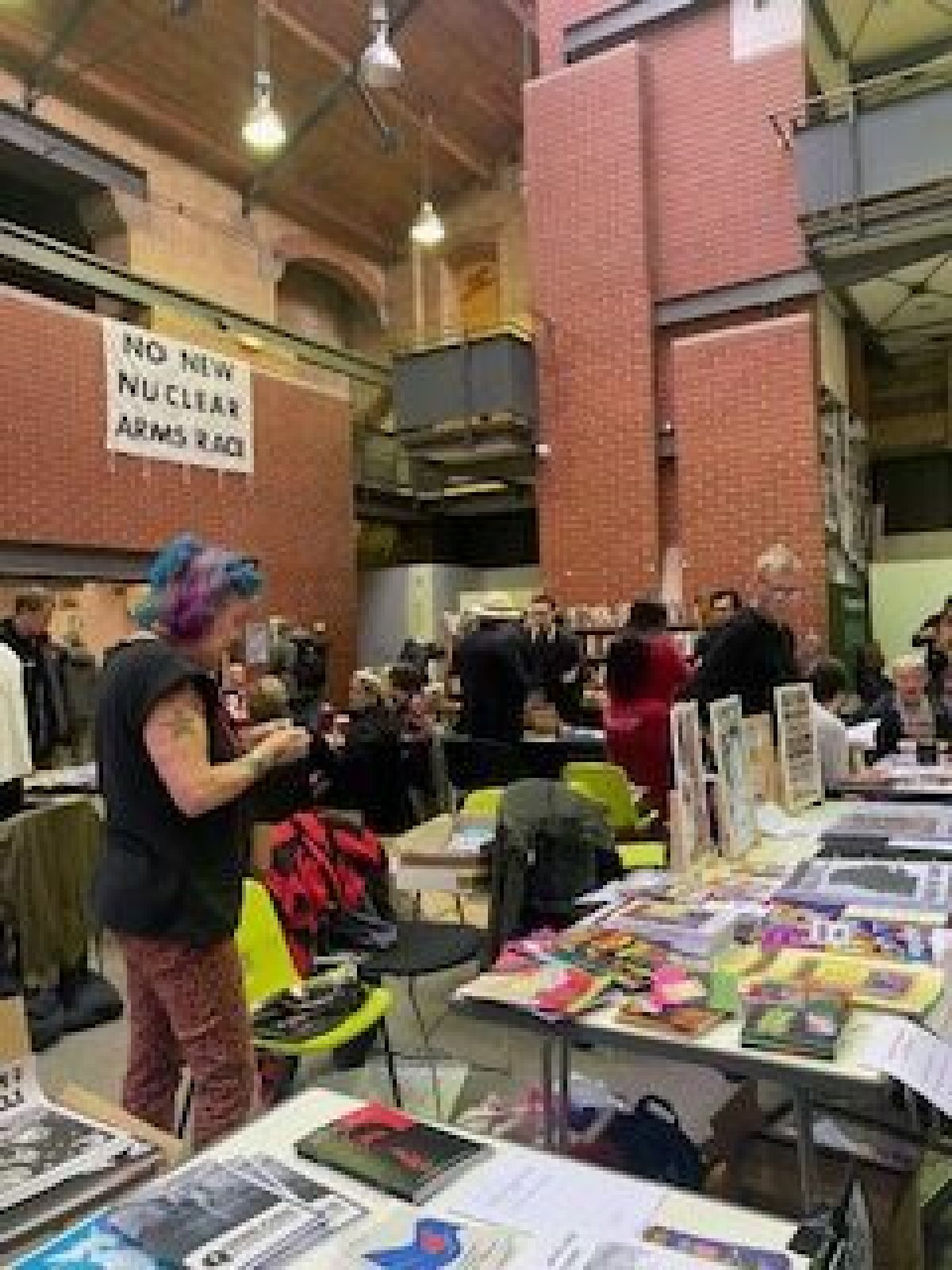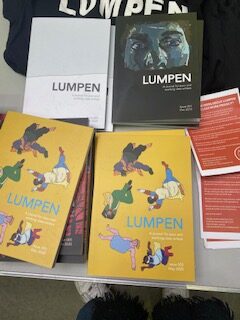Anarchist Book Festival 2022

Now we all know that Manchester is home to such fantastic literary opportunities, with the likes of the Manchester Literature Festival shortly departing the city after its huge success. Perhaps less well-known is the Anarchist Book Festival. What is it, and is it worth attending next year? The Mancunion had the unique opportunity to visit first-hand and find out.
Advertised through small pamphlets around campus, the Anarchist Book Festival was first founded in 2001, under the name Manchester Radical Book Fair. Originally taking place in a basement in Northern Quarter, the book fair has rapidly grown and popularity over recent years. As reflected in its name change, which better reflected the content and philosophy surrounding the literature promoted, the festival now takes place annually at the People’s History Museum in Spinningfields.
Now don’t be fooled, these writers and activists at the festival were not tied to the violent, self-determining roots that anarchy is associated with. Extending into the 21st century, the anarchist writers of the festival reject the hierarchies in society and give the silenced a voice. I considered the writers too like a community, trying to abolish the restrictive measures of the government.

Photo: Hannah McQuinn @ The Mancunion
Standing out to me when I walked around was the huge variety of literature produced on the show! Seeing Brave New World first caught my eye. A book which satirises the education state of the utopian, perfect world led by the forceful Henry Ford, the anarchists perhaps see the mechanised learning of the novel as a method of indoctrination.
Essays, interviews, memoirs, letters, biographies, and short stories were all on show at the festival. Catching my eye was a collection of essays called Lumpen: A journal for the working-class writers, published during each quarter of the year. Each collection contains intimate and factual essays from varied authors, often considered from not clear, poor, and working-class individuals. Yet each abolishes the preconception of the class, addressing their daily struggles and concerns with society. Reading essays discussing issues of food security and not being able to feed one’s children, I was struck by the realness and honesty of the writers which symbolised the reality for so many others.
Too touching on the injustice faced by the NHS during the covid pandemic, the anarchist writers engage passionately with appropriate and evocative subject matter that is not necessarily praised nor deemed of literary importance. Once more, the accessibility of their material to helps extend their reach to wider audiences, being easy to read and often at low price points!
Not typically being the literature that I would engage with, I found attending the Anarchist Book festival a rewarding experience. Seeing the engaging essays, enthusiastic writers, and unique concepts, anarchy does not nearly denote chaos and unruly behaviour, it discusses controversy through honesty and passion!







